1. A Loving Couple

Xu Lida and Qian Fenxiang married in their early 20s after meeting in their home of Baoying County, near Yangzhou in the province of Jiangsu, China. Soon after they tied the knot, the couple moved to the outskirts of Hangzhou. They were working in the scrap trade in the prosperous city of Hangzhou, which proved to be quite profitable in the early ’90s. The housing facilities where they lived, however, were so remote that when Qian went into labor with their first daughter, Xiaochen, Xu had no other choice but to put his wife at the back of a delivery tricycle and pedal as fast as he could for miles to the hospital.
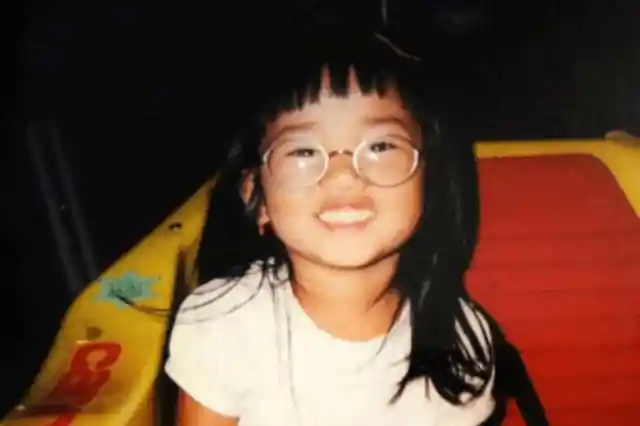
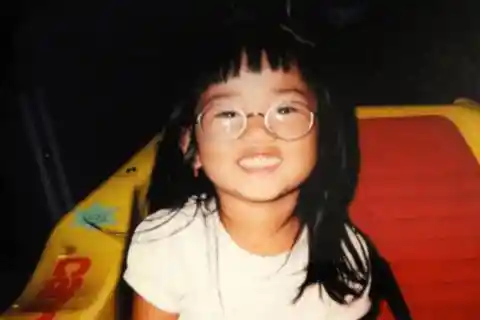

Xu Lida and Qian Fenxiang married in their early 20s after meeting in their home of Baoying County, near Yangzhou in the province of Jiangsu, China. Soon after they tied the knot, the couple moved to the outskirts of Hangzhou. They were working in the scrap trade in the prosperous city of Hangzhou, which proved to be quite profitable in the early ’90s. The housing facilities where they lived, however, were so remote that when Qian went into labor with their first daughter, Xiaochen, Xu had no other choice but to put his wife at the back of a delivery tricycle and pedal as fast as he could for miles to the hospital.
3. The Long Arm of the Law

China’s one-child policy came into effect in 1979 as part of the family planning policy to reduce poverty and manage the size of the population. Harsh measures such as sterilization and steep fines were implemented to anyone who exceeded their quota of one child per family, until the policy came to an end in 2015. In 1995, Qian found out she was pregnant again. “I would have felt so sorry if we had aborted her. I thought that even if we couldn’t afford to raise her, we could give her away,” Xu recalled to the South China Morning Post. Qian and Xu had a plan, though.
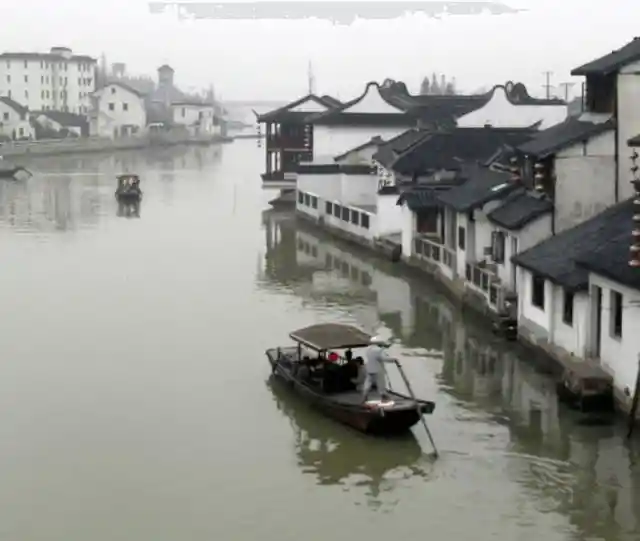
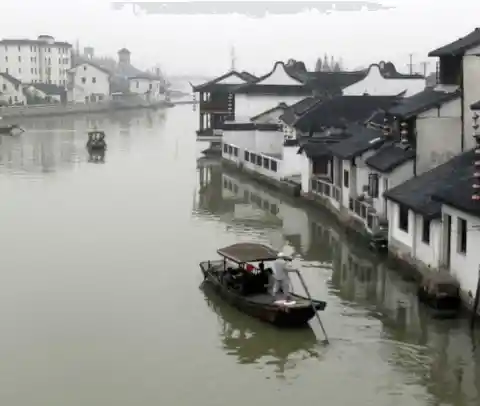

China’s one-child policy came into effect in 1979 as part of the family planning policy to reduce poverty and manage the size of the population. Harsh measures such as sterilization and steep fines were implemented to anyone who exceeded their quota of one child per family, until the policy came to an end in 2015. In 1995, Qian found out she was pregnant again. “I would have felt so sorry if we had aborted her. I thought that even if we couldn’t afford to raise her, we could give her away,” Xu recalled to the South China Morning Post. Qian and Xu had a plan, though.
5. A Heartbreaking Farewell

Qian and Xu were well aware that their newborn daughter, whom they named Jingzhi, was in grave danger. They decided that the best thing was to give her away, as heartbreaking as it was. The plan was to take her to the nearby vegetable market and leave her under a covered spot where someone would find her. “On the morning of the third day she was born, I prepared her milk, I held her and hugged her for a while. Then I walked to the market. She didn’t cry. She was asleep. I kissed her gently. I knew it was the final goodbye,” Xu lamented to the South China Morning Post. Little did they know, this wouldn’t be the final farewell.



Qian and Xu were well aware that their newborn daughter, whom they named Jingzhi, was in grave danger. They decided that the best thing was to give her away, as heartbreaking as it was. The plan was to take her to the nearby vegetable market and leave her under a covered spot where someone would find her. “On the morning of the third day she was born, I prepared her milk, I held her and hugged her for a while. Then I walked to the market. She didn’t cry. She was asleep. I kissed her gently. I knew it was the final goodbye,” Xu lamented to the South China Morning Post. Little did they know, this wouldn’t be the final farewell.
7. The Hand of Fate

Soon after Jingzhi was found abandoned at the vegetable market, an orphanage in Suzhou took her into their care. She started growing up and in 1996, just a year after she was born, something happened that would change the course of her life. One of the biggest international adoption agencies for Americans called Bethany Christian Services arranged for 10 American couples to come to the orphanage in China to adopt daughters. The orphanage was filled with girls because of one-child policy and the Chinese preference for boys.
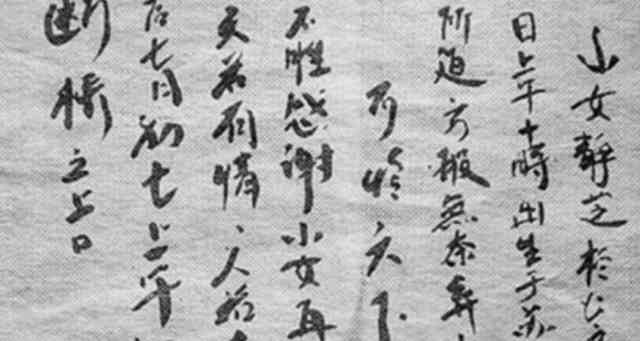
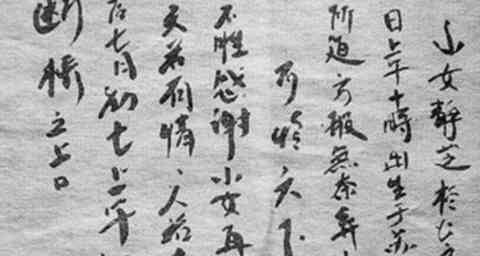

Soon after Jingzhi was found abandoned at the vegetable market, an orphanage in Suzhou took her into their care. She started growing up and in 1996, just a year after she was born, something happened that would change the course of her life. One of the biggest international adoption agencies for Americans called Bethany Christian Services arranged for 10 American couples to come to the orphanage in China to adopt daughters. The orphanage was filled with girls because of one-child policy and the Chinese preference for boys.
9. The Secret Letter

Once the Pohlers boarded the bus, Ken and Ruth turned to their translator to ask what this letter was all about. When the translator read it out to them in English, she burst into tears because of Qian and Xu’s heartfelt message. The Pohlers were also moved but quite taken aback. After some deliberation, they felt this letter would only complicate their daughter’s life so they agreed to keep the letter a secret until she was at least 18. They believed that by that age she’d be emotionally mature enough to handle such news. What’s more, they decided to show her only if Jingzhi wanted to know about her past.
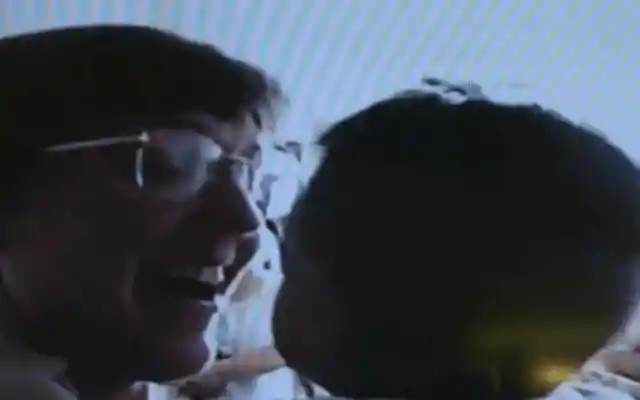
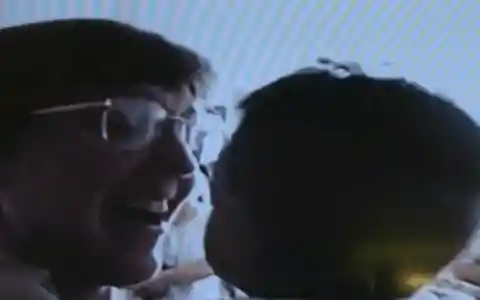

Once the Pohlers boarded the bus, Ken and Ruth turned to their translator to ask what this letter was all about. When the translator read it out to them in English, she burst into tears because of Qian and Xu’s heartfelt message. The Pohlers were also moved but quite taken aback. After some deliberation, they felt this letter would only complicate their daughter’s life so they agreed to keep the letter a secret until she was at least 18. They believed that by that age she’d be emotionally mature enough to handle such news. What’s more, they decided to show her only if Jingzhi wanted to know about her past.
11. Beautiful Memories

Kati blossomed into a beautiful girl who excelled at everything she did. The family albums boast lots of photographs of young Kati traveling the country with her parents and on school trips, playing the piano and viola, and winning sports tournaments. She led an active and outdoor kind of life, which kept her healthy and smiling. There were times Kati was curious about her past, but she didn’t really bring it up. Sometimes she’d ask Ruth: “Did I come from your tummy?” and her mother would respond, “No you didn’t come from my tummy. You came for a lady’s tummy in China, but you came from my heart. You were born of my heart.” Then Kati would run off and get preoccupied with something else, a sign for Ruth that Kati was content with that answer.



Kati blossomed into a beautiful girl who excelled at everything she did. The family albums boast lots of photographs of young Kati traveling the country with her parents and on school trips, playing the piano and viola, and winning sports tournaments. She led an active and outdoor kind of life, which kept her healthy and smiling. There were times Kati was curious about her past, but she didn’t really bring it up. Sometimes she’d ask Ruth: “Did I come from your tummy?” and her mother would respond, “No you didn’t come from my tummy. You came for a lady’s tummy in China, but you came from my heart. You were born of my heart.” Then Kati would run off and get preoccupied with something else, a sign for Ruth that Kati was content with that answer.
13. The 10-Year Mark

Qian and Xu prayed that Jingzhi’s adoptive parents read their letter, and that they’d fulfill their wish to see her again. The day came and the family went to the bridge, ready to be reunited with their beloved daughter. “We got there early, and we carried a big sign with our daughter’s name and words similar to those we used in the original note,” Xu told BBC. He recalled how awful they felt by wanting to run over to every single girl they saw on the bridge. All they could do was wait with hope; a hope that lay in the hands of the Pohlers.
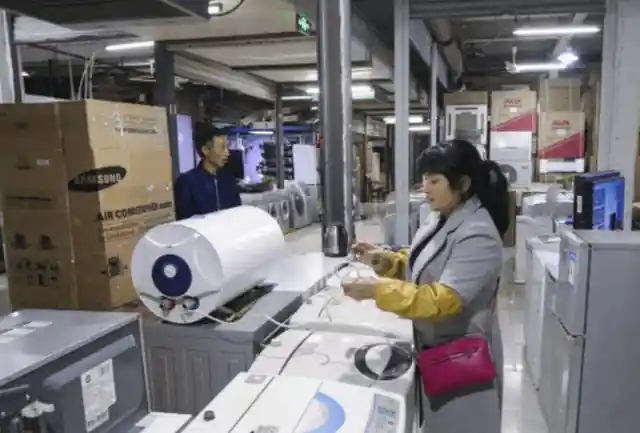
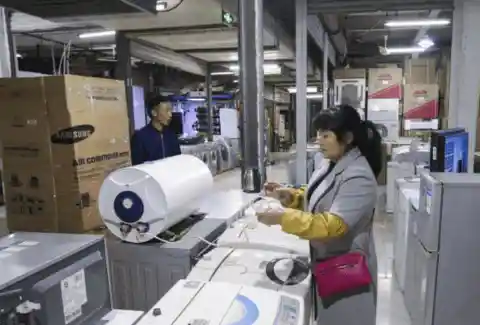

Qian and Xu prayed that Jingzhi’s adoptive parents read their letter, and that they’d fulfill their wish to see her again. The day came and the family went to the bridge, ready to be reunited with their beloved daughter. “We got there early, and we carried a big sign with our daughter’s name and words similar to those we used in the original note,” Xu told BBC. He recalled how awful they felt by wanting to run over to every single girl they saw on the bridge. All they could do was wait with hope; a hope that lay in the hands of the Pohlers.
15. Reaching Out

The Pohler’s friend got in touch with a friend of his called Annie Wu, who went to the bridge to find Qian and Xu. They didn’t want to involve Kati at this point, but they wanted her birth parents to rest assured that she was adopted by a family who adored her very much and had provided her with a good home. Unfortunately, Qian and Xu left only a few moments before Annie Wu got to the bridge. She double checked the bridge for any distressed-looking parents, but there was nothing. However, just when Wu was about to leave, something caught her attention.



The Pohler’s friend got in touch with a friend of his called Annie Wu, who went to the bridge to find Qian and Xu. They didn’t want to involve Kati at this point, but they wanted her birth parents to rest assured that she was adopted by a family who adored her very much and had provided her with a good home. Unfortunately, Qian and Xu left only a few moments before Annie Wu got to the bridge. She double checked the bridge for any distressed-looking parents, but there was nothing. However, just when Wu was about to leave, something caught her attention.
17. National Television

The news crew was so taken by Qian and Xu’s story that they decided to share it on national television and newspapers. That’s when a friend of the couple from Hangzhou saw one of the reports and put them in touch with the news station where they would meet Annie Wu. Qian and Xu frantically went to meet Wu at the station, where she gave them some pictures of their daughter and a letter from the Pohlers, assuring they would be in touch with Qian and Xu again. They were reassured that Jingzhi, now Kati, was fine but that wanted to hear more news about her from the Pohlers.
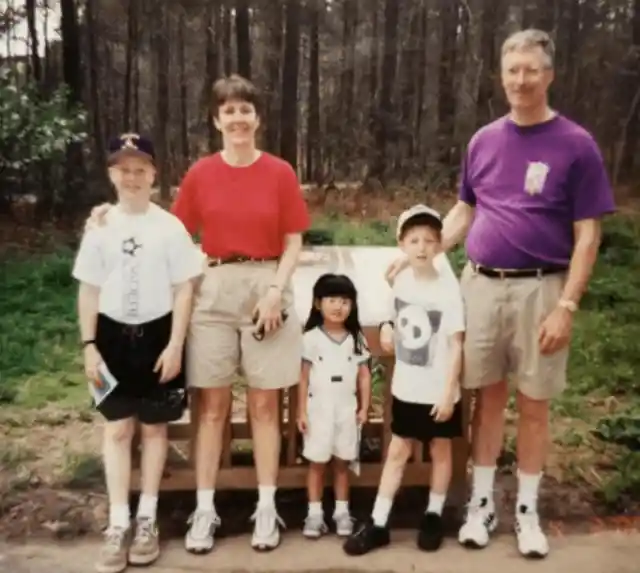
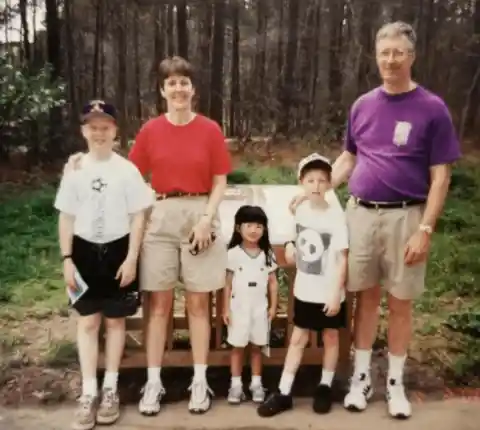

The news crew was so taken by Qian and Xu’s story that they decided to share it on national television and newspapers. That’s when a friend of the couple from Hangzhou saw one of the reports and put them in touch with the news station where they would meet Annie Wu. Qian and Xu frantically went to meet Wu at the station, where she gave them some pictures of their daughter and a letter from the Pohlers, assuring they would be in touch with Qian and Xu again. They were reassured that Jingzhi, now Kati, was fine but that wanted to hear more news about her from the Pohlers.
19. The Broken Bridge

Qian and Xu were absolutely devastated when they learned the Pohlers were not interested in meeting at this point, but they continued to visit the Broken Bridge every Qixi Festival for another 10 years. “Since 2004, I have visited the Broken Bridge every year. I knew there wasn’t much hope but I still kept waiting,” Xu told the South China Morning Post. Kati’s birth parents knew they had also written that they should meet on the bridge when their daughter turned 20-years-old, so not all hope was lost. Besides, they would have continued going to the bridge until the end of their days even if she didn’t show up again. Luckily for them, something miraculous would happen just over a decade later.
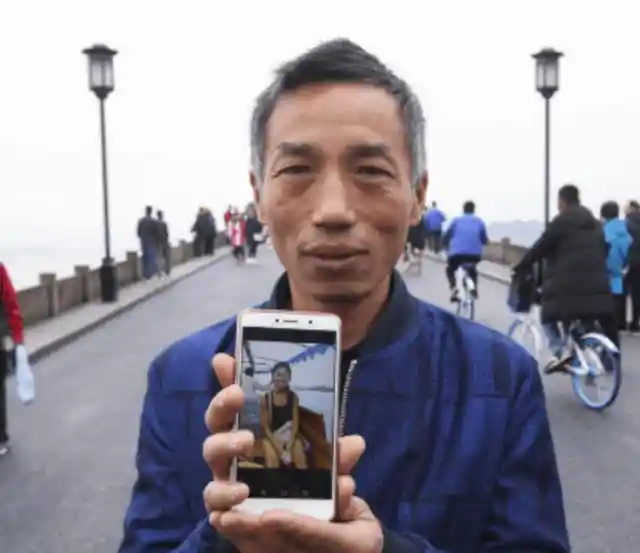
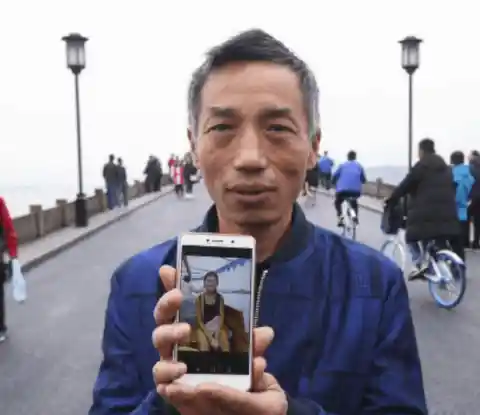

Qian and Xu were absolutely devastated when they learned the Pohlers were not interested in meeting at this point, but they continued to visit the Broken Bridge every Qixi Festival for another 10 years. “Since 2004, I have visited the Broken Bridge every year. I knew there wasn’t much hope but I still kept waiting,” Xu told the South China Morning Post. Kati’s birth parents knew they had also written that they should meet on the bridge when their daughter turned 20-years-old, so not all hope was lost. Besides, they would have continued going to the bridge until the end of their days even if she didn’t show up again. Luckily for them, something miraculous would happen just over a decade later.
21. Digging for Clues

Luckily Changfu did some more digging and happened upon an online message board for American parents with adopted children from the Suzhou orphanage. That’s where he saw Ken Pohler’s message, which mentioned how his daughter had a knee problem from rheumatoid arthritis.
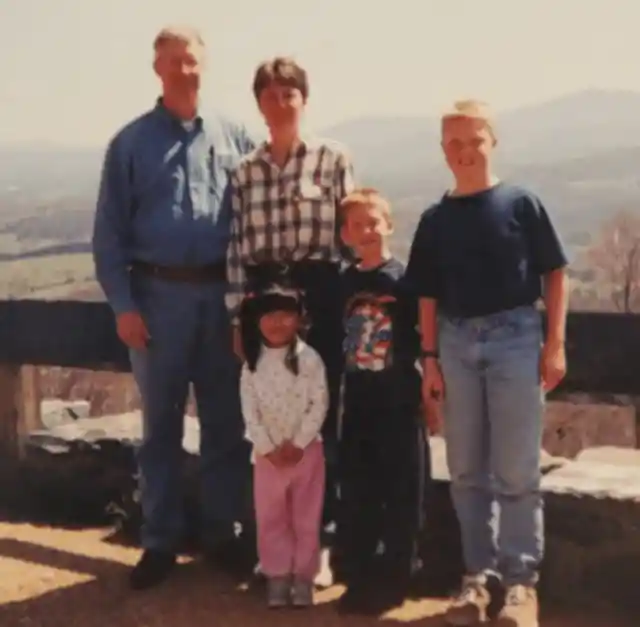
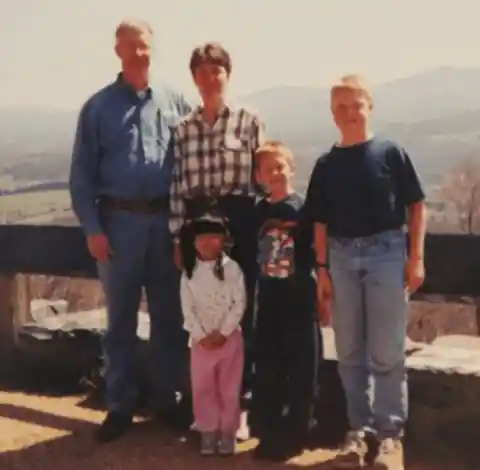

Luckily Changfu did some more digging and happened upon an online message board for American parents with adopted children from the Suzhou orphanage. That’s where he saw Ken Pohler’s message, which mentioned how his daughter had a knee problem from rheumatoid arthritis.
23. A Heart to Heart

While they were in the car one day, Kati asked her mother, “What do you know about my adoption?” That’s when Ruth said that there was something Kati needed to know; something she should have told her long ago.
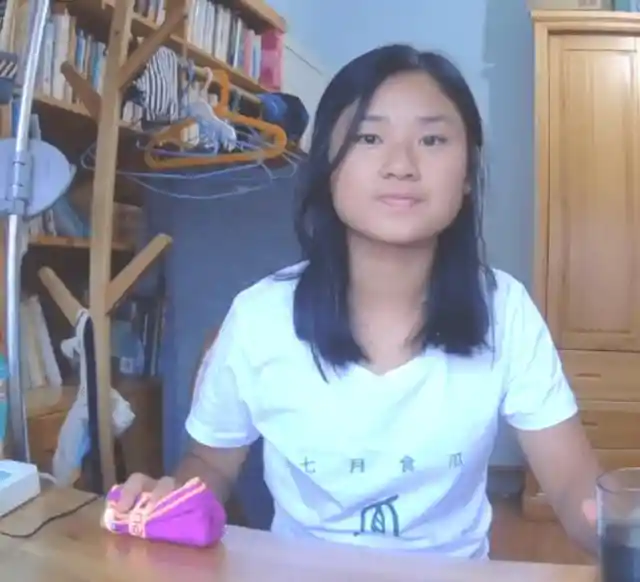
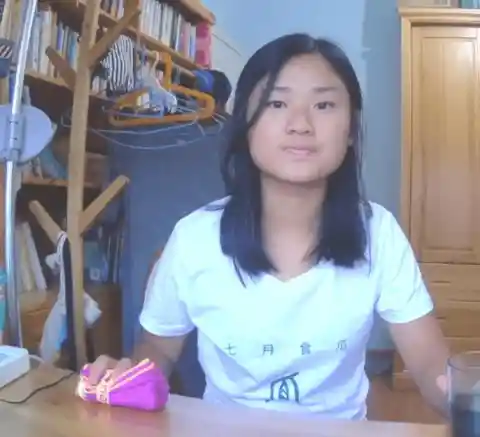

While they were in the car one day, Kati asked her mother, “What do you know about my adoption?” That’s when Ruth said that there was something Kati needed to know; something she should have told her long ago.
25. Fears and Trepidation

Kati told the BBC how she was feeling before the reunion. “I think my biggest fear in meeting my biological family is that somehow I’ll disappoint them more. In a lot of ways obviously they feel like they’ve let me down. But I also know how much pain they have gone through.” 
Kati told the BBC how she was feeling before the reunion.
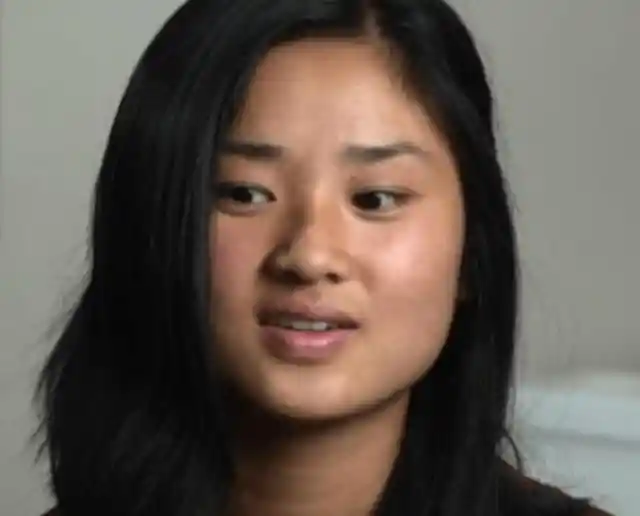
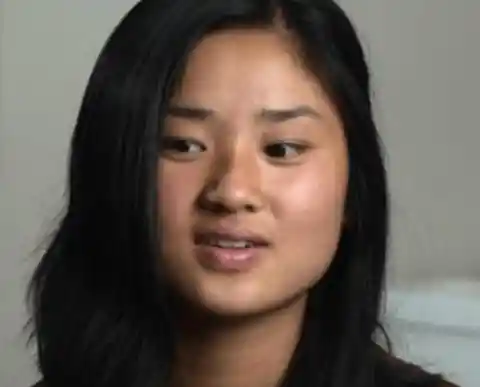
“I think my biggest fear in meeting my biological family is that somehow I’ll disappoint them more. In a lot of ways obviously they feel like they’ve let me down. But I also know how much pain they have gone through.”
27. Feeling at Home

After Kati finally met her birth parents after 22 years, she went to stay at their apartment for two days in her sister Xiaochen’s room. It was strange for Kati to comprehend that she had a sister, but they tried to communicate with the little English Xiaochen knew. Qian and Xu also took Kati back to their hometown to see her grandmother who had suffered a severe stroke a few years before. She hadn’t spoke for years, but she held Kati’s hand. After all, her grandmother was there on the houseboat all those years ago where Kati was born.
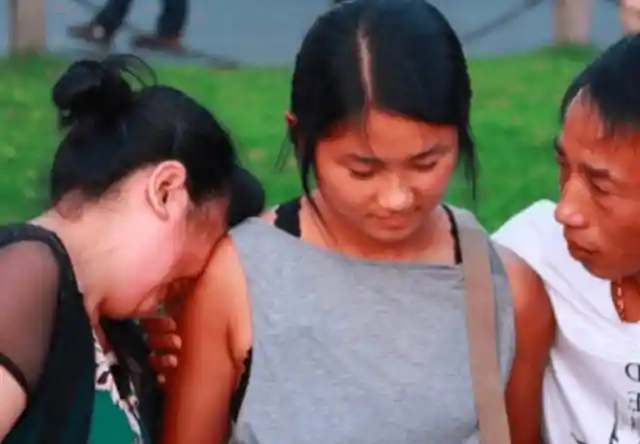
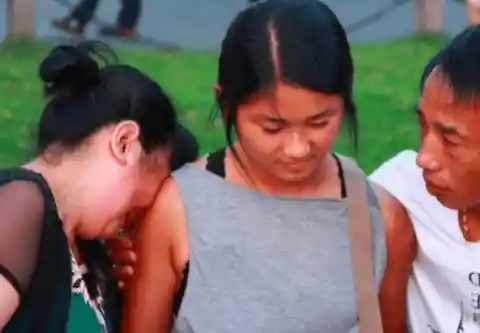

After Kati finally met her birth parents after 22 years, she went to stay at their apartment for two days in her sister Xiaochen’s room. It was strange for Kati to comprehend that she had a sister, but they tried to communicate with the little English Xiaochen knew. Qian and Xu also took Kati back to their hometown to see her grandmother who had suffered a severe stroke a few years before. She hadn’t spoke for years, but she held Kati’s hand. After all, her grandmother was there on the houseboat all those years ago where Kati was born.
29. Connecting with Her Roots

Before Kati visited China, her Asian identity was purely based on her physical appearance. She felt like an American through and through. “Now, it’s deeper than that. It’s good that I am more in touch with where I came from, but it is also confusing. I am a product of where I grew up and that is not Asian in any sense of the word,” she told the South China Morning Post.
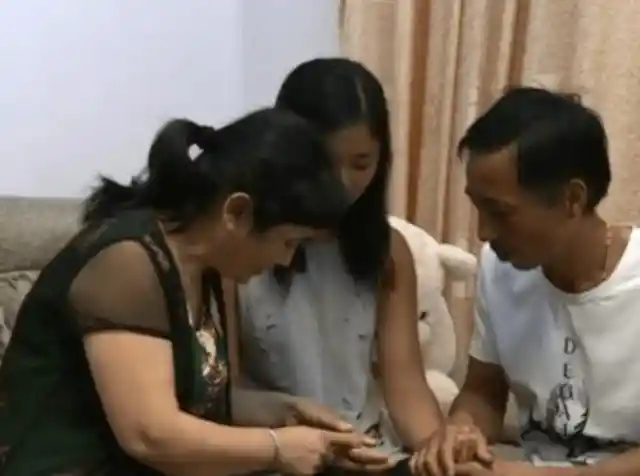
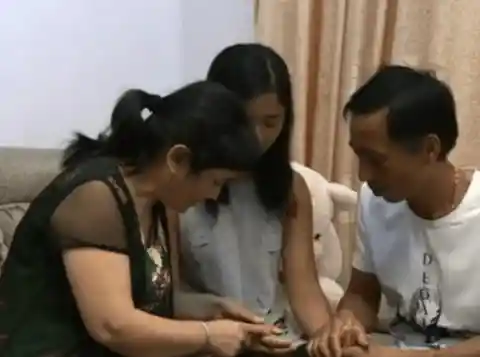

Before Kati visited China, her Asian identity was purely based on her physical appearance. She felt like an American through and through. “Now, it’s deeper than that. It’s good that I am more in touch with where I came from, but it is also confusing. I am a product of where I grew up and that is not Asian in any sense of the word,” she told the South China Morning Post.